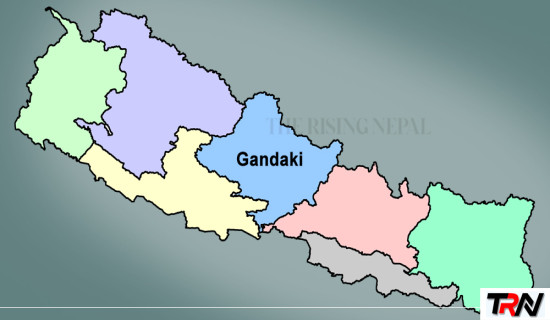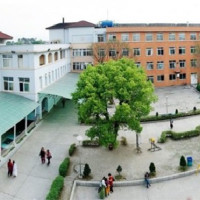- Saturday, 2 August 2025
Public Speaking Skills
Public speaking ability is demonstrated in personal, academic, social, and professional endeavors. It is considered a prominent life skill to sustain in today’s competitive global market place. In particular, public speaking competence is highly valued in academics. Public speaking as an assessment has been observed in schools, colleges, and universities. This skill is demonstrated through students’ engagement in classroom presentations, group work, role-play seminars, and debate competitions. For example, presentation, a form of public speaking, is under assessment for the BASW program, where the students are required to demonstrate their mass-facing skills by delivering a presentation in the front of the classroom.
Students may turn out to be both socially and economically empowered after enhancing their public speaking ability. To compete in a competitive global marketplace, students need to be good public speakers. Public speaking plays a vital role in enhancing the soft skills of students for their personal, academic, and professional development.
Public speaking skills boost the confidence level of students, making it easy for them to face mass. For example, Zivkovic (2014) revealed the importance of public speaking mainly in enhancing mass-facing and communicative competency. Enhancing public speaking skills helps students’ better get along with others.
Vyotsky’s socio-cultural theory plays a crucial role in enhancing the presentation skills of students, whereby they develop mass-facing skills. This theory revolves around the theme of social interactions (interpersonal), cultural-historical, and individual factors for the skill development of humans. In addition, Vygotsky’s theory perceives language as the main vehicle of thought, and learning precedes development; mediation is central to learning; social interaction is the basis of learning and development. Vygotsky's theory is based on constructivism, which conceptualises learners to construct knowledge and understanding of things better than what they already know.
Vygotsky argued the mastery of any behaviour or skill of an individual is concerned with surroundings or the outer environment, and speech is a key to mastering it. He further argued that human intellectual development happens when speech and practical activity converge or move simultaneously. To meet life's goals or solve a problem with a solution, I believe speech plays a key role. Most importantly, the development of socialised speech, the form of public speaking, develops the linguistic and communication competency that helps us meet our goals and achievements.
Vygotsky’s socio-cultural theory is significant for public speaking competence since it is highly influenced by surroundings or environment. In addition, Vygotsky’s socio-cultural theory also suggests pedagogical implications based on student-centredness, which argues that the teacher’s prime duty is to help learners learn in a conducive or relaxing learning environment by engaging in different social interactive activities. Considering these views, socio-cultural theory is appropriate since it allows teachers to examine their pedagogical practices and help learners develop public speaking skills. This theory fosters a teaching and learning environment, enabling students to achieve their highest academic and professional potential. The teaching and learning process are enhanced in a conducive learning environment that reduces the anxiety and stress levels of learners. Teachers should imbibe confidence and improve learners' self-esteem by providing a relaxing environment.
Vygotsky discussed the personal development of students through group work, collaborative work, and individual work. Vygotsky’s social-cultural theory argues for students’ different learning capabilities; therefore, teachers should internalise the different learning capabilities of the students and deal accordingly to enhance their overall learning process. According to Vygotsky’s social-cultural theory, if students’ culture and social backgrounds are recognised and paid with special individual attention by teachers, learners may develop their public speaking competency.
One of the best-known concepts of Vygotskian theory is potential development or zone of proximal development. According to Vygotsky, the zone of proximal is the distance between what a learner can learn independently and what a learner can learn with the help of capable peers or educators. The highest potential of an individual can be gained through collaboration and guidance from capable peers or experts. Vygotsky defined the zone of proximal development as the distance between what an individual learns by his or her own capability, knowledge, and understanding, and his/her attainment of potential development through the help of capable peers, adults, and instructors' guidance.
Zone of proximal development (ZPD) refers to the difference between a learner’s actual learning at present and his/her potential learning in the future with the help of an instructor or capable peer. Students on their own do not know an effective way to make a presentation in front of the masses despite having linguistic competence. For example, they do not know the principles of public speaking, the appropriate use of verbal and non-verbal cues, the purpose behind communication, or the knowledge of setting limits before presentation. These should be well-guided or instructed by teachers or educators.
Vygotsky focused on the role of play as a medium to create a zone of proximal development (ZPD) in children. Examining the further role of ZPD, Vygotsky argued the zone of proximal development is a step or medium to have mastery of any tasks or skills, and this state can be achieved through productive and collaborative engagement with more capable or knowledgeable peers, adults, and teachers. The purpose of ZPD is to examine the development of individuals; hence, the instruction should be designed in a way that ensures the growth and development of the children. The development of human skills is acquired through cooperative learning and social mediation. Cooperative learning refers to the engagement in a small group, and the instruction is made with the intention of solving problems. Social mediation refers to the attainment of knowledge and skills through social interaction.
With globalisation and economic challenging situations, students are expected to be globally competent to face a competitive global marketplace. This requires students to be efficient in public speaking. Oral presentation, a form of public speaking, requires learner-centred activity to enhance public speaking competence in English language classrooms. Oral presentation in front of the mass is an authentic way to develop public speaking skills. Different student-centred techniques in English language classrooms, such as group work, pair work, classroom interaction, individualisation, questioning and answering sessions, project work, and presentation, enhance the self-confidence of learners, whereby they develop public speaking skills.
(The author is a visiting assistant professor at Kathmandu University School of Law and School of Engineering.)
















